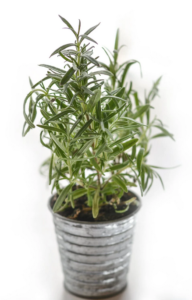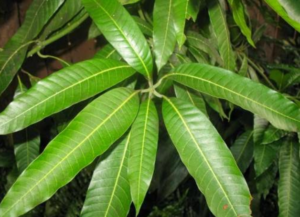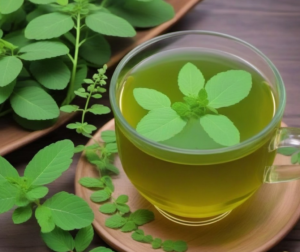We have covered various types of leaves which have tons of benefits and health-elevating properties. These include organic nettle leaves, mango leaves, organic dried rosemary, and so on. Today we bring you yet another nature’s gift which is Baobab leaves. These are derived from the majestic baobab tree (Adansonia digitata) and have been well-known for their nutritional components. In today’s article, we will dive into its details and learn some of the health benefits of baobab leaves.
Nutrient Profile

Rich in Antioxidants
Baobab leaves are known to have high concentrations of antioxidants
Abundant in Vitamins
Baobab leaves are abundant in essential vitamins such as vitamin C, vitamin A, and vitamin K [2]. These vitamins help support immune function, vision, and blood clotting. Additionally, these vitamins also help you maintain healthy skin and bones.
Mineral Mine
Baobab leaves are excellent sources of minerals like iron, calcium, and potassium [3]. While iron aids in preventing anemia, calcium takes care of your bone health. Potassium on the other hand helps regulate blood pressure.
Potential Health Benefits

Immune System Boost
Due to the high vitamin C content in baobab leaves, it helps support the immune system. This results in better health and your body’s enhanced ability to fend off infections and illnesses.
Anti-Inflammatory Properties
Studies suggest that baobab leaves possess anti-inflammatory properties. These may help alleviate symptoms of inflammatory conditions such as arthritis and inflammatory bowel diseases.
Blood Sugar Regulation
There is some research[4] suggesting that baobab leaves may play a role in regulating blood sugar levels. This makes them potentially beneficial for individuals managing diabetes.
Digestive Health
Baobab leaves are rich in fiber content. This in turn supports digestive health by promoting regular bowel movements and preventing constipation [4].
Culinary Uses and Incorporation
Culinary Versatility
There are plenty of ways in which you can incorporate baobab leaves into your diet and dishes. They can be added to soups, stews, and salads. Their mild tangy flavor allows them to complement a wide range of culinary creations.
Preparation Tips
If you want to maximize the nutritional benefits of baobab leaves then it would be wise to lightly cook them to retain their nutrients. You can also consume them in the form of tea or as a supplement for added convenience.
Aligning with Green/Sustainability Practices

Other than the fact that this is a natural product that helps us in many ways, you would be surprised how consuming them, can also promote sustainability and eco-friendly practices.
Eco-Friendly Cultivation
Baobab trees are known to be quite resilient in dry regions. They require minimal water and thrive in harsh conditions. Moreover, they also protect the soil from erosion, especially if the region is dry and lacks vegetation. This makes baobab leaves a sustainable and eco-friendly choice compared to crops that demand more resources.
Supporting Local Economies
The cultivation and harvest of baobab leaves often involve local communities. This is mainly concentrated in mainland Africa where local communities thrive by its cultivation. providing economic opportunities and contributing to the sustainable development of regions where baobab trees are abundant. Thus it also becomes a means of livelihood for many.
Reduced Carbon Footprint
As you consume something natural and green, choosing baobab leaves as part of your diet aligns with sustainability goals. This is due to the minimal environmental impact associated with their cultivation and processing. This leads to a reduced carbon footprint.
Conclusion
In conclusion, the health benefits of baobab leaves are diverse and compelling. It offers tons of health benefits and is a very natural and sustainable product. Moreover, the eco-friendly element attached to it makes it a very good choice. Try it out and let us know your experience, we would love to hear your feedback.





